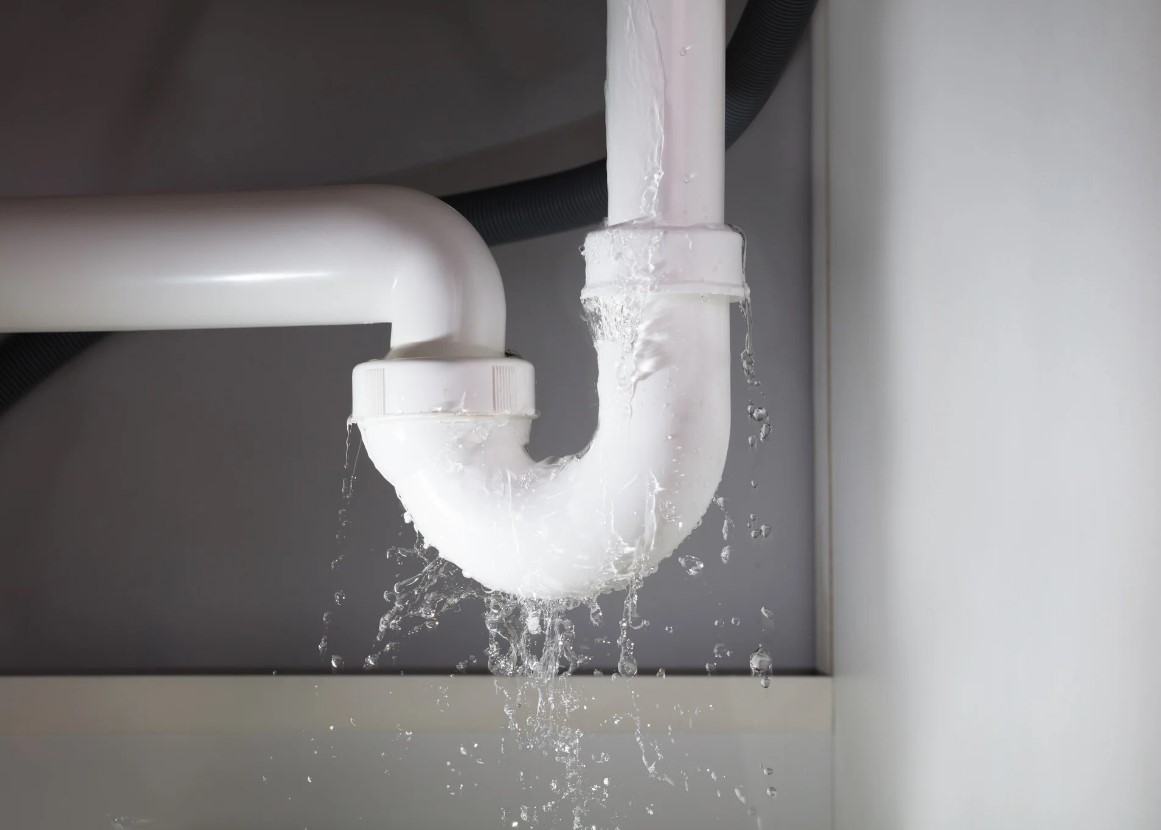What are some common causes of water leaks?

Water leaks can be a pain, but finding and repairing them doesn’t have to be. Follow our tips and tricks and you’ll be a water leak expert in no time!
Why are water leaks important to repair?
Water leaks can cause a number of problems in your home, from staining and damage to walls and floors to increased utility bills. In some cases, leaks can even lead to mold growth. Given the potential risks, it’s important to repair any water leaks as soon as possible.
What are some common causes of water leaks?
There are many possible causes of water leaks, but some are more common than others. The following are some of the most common causes of water leaks:
-Pipes that are old and corroded are more likely to develop leaks. This is especially true of metal pipes, which can corrode from the inside out.
-Joints and seals that are not properly sealed or installed can also cause leaks. Over time, these seals and joints can break down, allowing water to escape.
-In some cases, water leaks can be caused by problems with the supply lines themselves. If there is a break in the line or a blockage, it can cause water to leak out.
– Tree roots can also cause water leaks. If tree roots grow into or block a pipe, it can cause water to build up and eventually leak out.
How can you find a water leak?
If your home has water leaks, you may be wasting water and money. A single leak can waste more than 10,000 gallons of water a year.
Home water leaks can be detected in several ways:
– Check your monthly water bills. If your bill is higher than normal, there may be a leak.
– Check for moisture on the ground around your home.
– Look for puddles or dry spots in your yard. These could be indications of a leak in an underground pipe.
– Look for green grass in an otherwise dry area. This could also be an indication of an underground pipe leak.
– Listen for the sound of running water when no plumbing fixtures are turned on. This could indicate a hidden leak.
If you suspect you have a water leak:
– Turn off all the faucets and plumbing fixtures in your home, then check your meter to see if it is still running. If it is, you have a leak somewhere in your system.
– Inspect all exposed pipes for leaks (under sinks, behind toilets, etc.). Pay particular attention to joints and valves, which are potential locations for leaks
How do you repair a water leak?
If you have a water leak, the first thing you should do is turn off the water to your home at the main water shut-off valve. This will stop the flow of water and prevent further damage. Once the water is turned off, you can begin to assess the situation and figure out how to best repair the leak.
There are a few different ways to repair a water leak, depending on where the leak is located. If the leak is in a pipe, joint, or tee fitting, you may be able to simply tighten the fitting with a wrench or replace the packing material around the joint. If the leak is in a rubber hose, such as those used for washing machines or dishwashers, you may be able to patch it with a self-adhesive patch or replace it entirely. If the leak is coming from a fixture, such as a faucet or toilet, you will need to disassemble the fixture and repair or replace any damaged parts.
No matter what type of repair you need to make, it is important to do it properly in order to prevent further damage and future leaks. If you are not sure how to make a particular repair, it is best to consult with a professional plumber who can help you troubleshoot the problem and make sure that the repair is done correctly.
What are some common myths about water leaks?
Many people believe that water leaks are only a problem in the winter, when water pipes freeze and burst. However, water leaks can occur at any time of year, and they can be just as damaging in the summer as in the winter. In fact, according to the Environmental Protection Agency (EPA), water leaks are responsible for more than 10,000 gallons of wasted water every year in the average American home.
There are many myths about water leaks, and it’s important to separate fact from fiction so that you can take steps to prevent and repair them. Here are some common myths about water leaks:
-Myth 1: Only old homes have leaky pipes.
-Myth 2: Leaks only happen when it’s cold outside.
-Myth 3: Water leaks are easy to spot.
-Myth 4: Only a plumber can fix a leaky pipe.
-Myth 5: Repairing a leaky pipe is expensive.
How can you prevent water leaks?
There are a few things you can do to prevent water leaks:
-Check all connections, pipes, and fixtures regularly for leaks.
-Apply caulking or weather-stripping around doors and windows to keep cold air from coming in and hot air from escaping, which can cause pipes to freeze.
-Install an automatic shut-off valve on your water heater so it will turn off if there is a leak.
-Know where your main water shut-off valve is located so you can turn off the water in an emergency.
-Consider installing a whole-house leak detection and alarm system. These systems can notify you of a leak even when you’re away from home.
What are the consequences of ignoring a water leak?
Water leaks can lead to a number of problems in your home, such as Mold & Mildew, Rotting Wood, Cracks in Foundations and Flooring, Higher Utility Bills, and Pest Infestations.
If you suspect that you have a water leak, it is important to take action quickly to avoid further damage to your home. The first step is to find the source of the leak. This can be done by checking for wet spots on your ceilings, walls, or floors; noticing any changes in your water bill; or listening forrunning water when all appliances and fixtures are turned off.
Once you have located the source of the leak, you can begin repairing it. For small leaks, such as those from a dripping faucet or toilet tank, you may be able to fix the problem yourself with a few tools and supplies from your local hardware store. For more serious leaks, it is best to contact a professional plumber.
Ignoring a water leak can have serious consequences for your home and wallet. By taking action quickly to find and repair the leak, you can prevent further damage and save yourself time and money in the long run.
How do you know if a water leak is serious?
Water leaks can cause a lot of damage to your home if they’re not fixed promptly. Not only can they ruin walls, floors, and ceilings, but they can also lead to mold growth and insect infestations.
There are a few ways to tell if a water leak is serious. First, check for obvious signs of water damage, such as staining on walls or ceilings, peeling paint, or warped floors. Second, listen for the sound of running water even when all the taps in your home are turned off. Third, look for unexplained increases in your water bill.
If you suspect you have a water leak, it’s important to act quickly. The longer the leak goes unaddressed, the more damage it will cause. You should also be aware that some types of leaks, such as gas leaks, can be dangerous. If you smell gas or hear a hissing sound coming from a pipe, evacuate the premises immediately and call the gas company.
Once you’ve determined that you have a water leak, the next step is to find the source of the leak. This can be tricky, especially if the leak is hidden behind a wall or under a floorboard. One way to locate a hidden leak is to keep an eye out for drips or puddles when it hasn’t rained recently. Another way is to use a moisture meter to check for high moisture levels in areas where leaks are known to occur, such as near plumbing fixtures or in crawl spaces.
Once you’ve found the source of the leak, you can begin repairs. For small leaks, such as those in plumbing fixtures or pipes, you may be able to fix them yourself with supplies from your local hardware store. However, for more serious leaks, such as those that have damaged your home’s foundation, you will need to hire a professional contractor.
Repairing a water leak may seem like a daunting task, but it’s important to act quickly to avoid further damage to your home. By being vigilant and taking action immediately if you suspect a problem, you can prevent extensive (and expensive) repairs down the road
What are the most common types of water leaks?
There are many different types of water leaks, but some are more common than others. Here are some of the most common types of water leaks:
– point-of-use leaks: these leaks occur at the point where water is used, such as at a faucet, showerhead, or toilet. Point-of-use leaks can be caused by worn-out gaskets or washers, loose connections, or faulty valves.
– static leaks: static leaks are usually caused by poorly fitting pipes or damage to the pipe itself. Static leaks can also be caused by pressure build-up in the system.
– dynamicLeaks: dynamicLeaks are usually caused by moving parts in the system, such as pumps or valves. Dynamic leaks can also be caused by vibrations in the system.
How do you troubleshoot a water leak?
There are three main ways to troubleshoot a water leak. The first is to check the obvious sources, such as faucets, toilets, and showers. If there is no leak at these sources, then the next step is to check the pipes. This can be done by turning off all the water in your home and then checking the meter. If the meter is still running, then there is a leak in the pipes. The last step is to call a professional plumber to come and take a look at your home.



